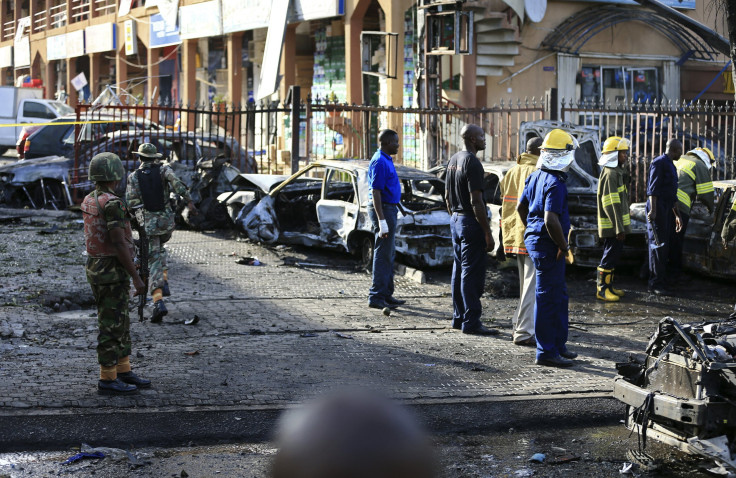As Boko Haram Killings Increase In Nigeria, Is Boko Haram More Dangerous Than ISIS?

Since 2009, West Africa, chiefly Nigeria, has been terrorized by the Islamist militant group Boko Haram. The extremist movement recently pledged allegiance to the brutal Islamic State group that has seized large areas in Syria and Iraq this year. Though shoved aside in international headlines by its allies, Boko Haram has rivaled and sometimes even surpassed the group also known as ISIS in bloody attacks, and its insurgency has emptied entire towns, displaced around 650,000 people within Nigeria and forced hundreds of thousands to flee the country.
“Now if you look at what is happening in Nigeria with Boko Haram is not different with ISIS in Iraq and Syria, in fact our own people are more vicious, but everybody has gone to Syria, to go and bomb,” the Nigerian air force chief, Marshal Alex Badeh, recently said, addressing his men. “Who has come to your aid? You have just been left alone to do it.”
Boko Haram, whose official name translates to People Committed to the Prophet’s Teachings for Propagation and Jihad, wants to create an Islamic state in Nigeria and surrounding countries. Like ISIS, the group is very well funded from various sources. The militants make most of their money from kidnapping ransoms, robbery, enforced taxes on seized populations, affiliated terror groups and private donations, according to The Week.
“It is a very well-funded organization where it has so many sources of income, including in Nigeria and that whole region," Yan St-Pierre, CEO of the Counter-Terrorism Modern Security Consulting Group, told the Voice of America in March. "It does get money from the piracy, especially from the west coast of Africa. Drug trafficking helps, smuggling."
An increase in attacks and the use of more sophisticated weapons points to an increase in the group's funding this year. From January to June 2014, Boko Haram attacks killed at least 2,053 people, according to a report from Human Rights Watch. Months later, the situation is just as dire for Nigeria’s civilians.
Multiple attacks in Nigeria in the last two weeks have left at least 220 people dead, with some estimating that number to be closer to 300. Two female suicide bombers killed at least 75 people on Tuesday, there was deadly a bomb blast in a bus station Thursday, gunfire at a mosque on Friday left at least 81 people dead and militants slit the throats and drowned nearly 50 fishermen last Thursday. Though some of these attacks have yet to be claimed, Boko Haram is widely suspected to be responsible.
Earlier this month the militant group seized a town in northeast Nigeria’s Borno state, killing nearly 50 people. That attack forced at least 3,000 people to flee to neighboring Niger, where at least 100,000 people have fled since May 2013, according to the United Nations refugee agency. Last month, Boko Haram seized the town of Mubi in Nigeria’s Adamawa state and their presence forced at least 13,000 people to flee into neighboring Cameroon.
“It is extremely dangerous," Adrian Edwards, a U.N. refugee spokesman told VOA News. "People are fleeing very quickly, very fast. A lot of women, a lot of elderly, a lot of children amongst those coming across … posing real difficulties. Families separated. Children lost from their parents. People with no belongings at all."
© Copyright IBTimes 2025. All rights reserved.






















